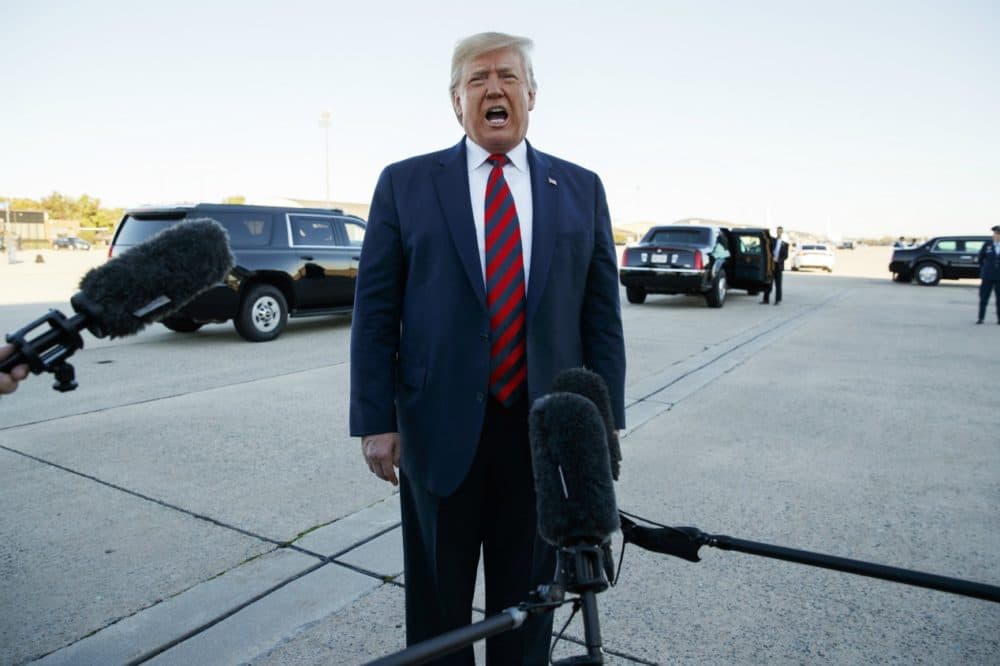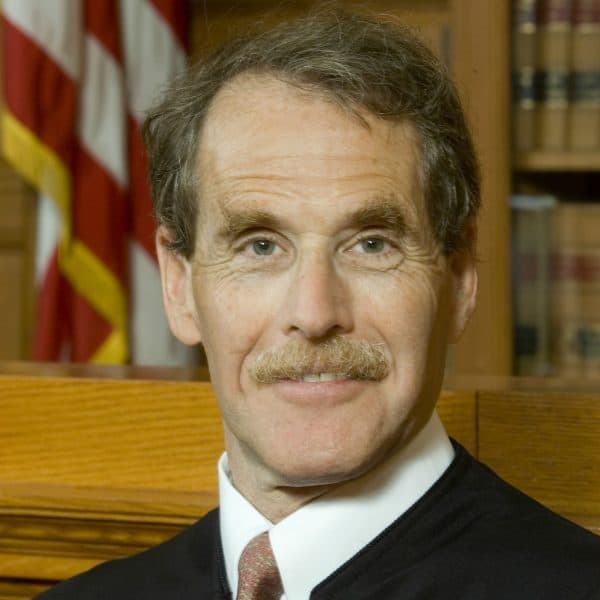Advertisement
Commentary
To Check Trump's Lies, Check His Lawyers

You have to say this for Donald Trump: He’s caused many Americans to learn about laws and regulations they might never have encountered in the course of perfectly normal lives.
Like it or not, we’ve become conversant with the emoluments clause, intricacies of campaign finance law, congressional subpoena power, Justice Department policies shielding a president from indictment, whistleblower protection requirements and the difference between collusion and conspiracy, to name a few.
With apologies to everyone who doesn’t wish to learn any more about the law, I’d like to add one more to the list: Rule 11 of the Federal Rules of Civil Procedure, designed to hold lawyers to a defined standard of truth. It’s past time to deploy Rule 11 against the small army of mini-Giuliani's and mini-Barr's who are importing Trump’s factual and intellectual dishonesty into our courtrooms.
In August the Washington Post clocked Trump in at over 12,000 lies. But a lie is not a crime unless it’s made under oath, or intended to defraud someone who reasonably relies on it to some detriment. Ironically, Trump could defend himself by pointing out that, by now, no one can reasonably rely on anything he says. Here’s a test: try to remember the last time something he said was true.
In contrast to lies shouted on the White House lawn while helicopter blades whine in the background, Rule 11 punishes people who lie in court. An attorney’s signature on a court filing certifies that it “is well grounded in fact and is warranted by existing law or a good faith argument for the extension, modification or reversal of existing law.” In addition, a lawyer’s signature certifies that a paper is not filed “for any improper purpose, such as to harass or to cause unnecessary delay or needless increase in the cost of litigation.”
The way to hinder ... Trump’s malfeasance is to punish the hired guns who are willing to go to court with any claim he fabricates, no matter how phony.
A court can decide that Rule 11 has been violated entirely on its own initiative, or in response to a motion from the opposing party. The most common penalty is an award of attorneys’ fees and other costs that can be supplemented by punitive damages — all in a judge’s discretion. Judges are empowered to fine and discipline the lawyers themselves, a surefire way to capture their attention.
The House is scheduled to vote on a resolution that will initiate the public phase of the impeachment inquiry as early as this week. And as impeachment looms, Trump is certain to ratchet up his use of obstruction and spurious counter-attacks. More than enough time has passed to demonstrate that Trump and his cronies have had ample opportunity to comply with discovery requests and subpoenas. Trump himself has been perversely helpful by openly blocking witnesses and defying Congress.
This type of chest-beating may play well at campaign rallies and on Fox News, but it doesn’t do so well in court pleadings. Judges across the country are calling him out:
The New York attorney general’s investigation of the Trump Foundation. Trump’s attorneys have argued that the Constitution renders sitting presidents immune from criminal investigations. But federal district court Judge Victor Marrero, sitting in the Southern District of New York, wasted no time in declaring this claim “repugnant to the nation’s governmental structure and constitutional values.” Unable to take a hint, the Trump legal team appealed the decision to the Second Circuit Court of Appeals (a decision is still pending) where they argued that Trump’s remark about freedom to shoot someone on Fifth Avenue was a correct statement of law while he is in office.
[Trump] ... uses court obstruction to energize his base and, for all of this, has suffered no consequence.
Diversion of funds for the border wall. A federal judge in Texas rejected outright the administration’s diversion of $6.1 billion from the Department of Defense’s budget for border wall construction. The court noted that the budget, passed by Congress and signed by Trump himself, “expressly forbids the defendants’ funding plan” and that a second argument made by administration lawyers was directly contradicted by a “golden rule of statutory construction… ‘established from time immemorial.’” You don’t need a law degree to understand the statute:
None of the funds made available in this or any other appropriations act may be used to increase … funding for a program, project, or activity [unless the change is authorized by legislation].
Immigration green card regulations. Federal judges in Washington, California and New York have described Trump’s lawyers as “failing to provide any reasonable justification” and “failing to cite any statute, legislative history or other resource that supports [their legal position]” and making claims “substantially outside the bounds of reasonable interpretation” to justify a plan to reject green card applicants who are impoverished. Simply: there is no legal basis for their position.
The House Ways and Means Committee’s request for Trump's tax returns. Last week, the U.S. Court of Appeals in D.C. enforced a congressional subpoena for Trump tax returns. Again, the law is in plain English: “Upon written request … the Secretary [of the Treasury] shall furnish [any requested tax return to the Ways and Means Committee].” Two judges on the three-member panel noted that the administration’s excuse of political motivation to justify its refusal to comply has been explicitly rejected by the Supreme Court. (The third judge, a Trump appointee, dissented from the result, but did not agree with the Trump defense.)
Trump has habitually employed the court system as a tool of obstruction, economic intimidation and bullying. He has stonewalled creditors with litigation, whether they are banks or small business contractors, forcing them to accept pennies on the dollar both in and out of bankruptcy. He has historically used libel law to stifle criticism and, as president, forced Congress into court to perform basic oversight functions. He now also uses court obstruction to energize his base and, for all of this, has suffered no consequence.
But Trump can be brought to heel by disciplining the lawyers who enable him. The way to hinder this particular aspect of Trump’s malfeasance is to punish the hired guns who are willing to go to court with any claim he fabricates, no matter how phony.
